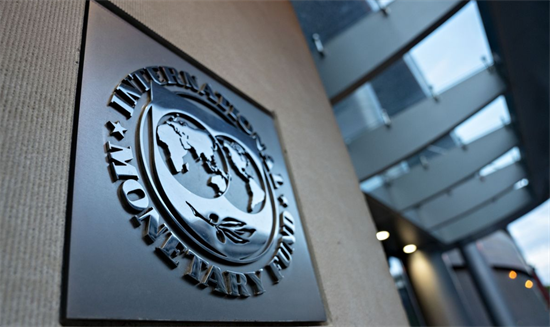ICYMI: Rep. Hill in RealClearMarkets: “The IMF Should Cease Writing Checks to Rogues, or to the Rich”
LITTLE ROCK, AR,
September 17, 2021
In an op-ed in RealClearMarkets, Rep. French Hill (AR-02) outlined his concerns with the International Monetary Fund’s allocation of $650 billion in Special Drawing Rights that went live on August 23, 2021. Rep. Hill argues that it’s time to stop providing a blank check to wealthy nations, authoritarian regimes, and state sponsors of terror, and instead protect the national security interests of the United States and her allies. To read the full op-ed on RealClearMarkets, click HERE. A full transcript of the op-ed is copied below: The IMF Should Cease Writing Checks to Rogues, or to the Rich After months of standing on the sidelines, it took the Taliban takeover of Afghanistan for the Biden Administration to finally listen. I recently led a letter with 17 Republicans on the Financial Services Committee to Treasury Secretary Janet Yellen urging her to intervene to ensure that no SDRs from the IMF are made available to a Taliban-led Afghanistan. As a result, the Treasury Department announced that it is taking steps to prevent the Taliban from accessing an estimated $450 million in SDRs earmarked for Afghanistan, while the IMF confirmed that it is suspending Afghanistan’s access to these funds. In the letter, I also asked Secretary Yellen to provide detailed information on measures she will put in place at the IMF to ensure that SDRs – including SDR transfers – are not used by member countries in a manner that runs counter to our national interest. The United States should not stand by while the International Monetary Fund (IMF) sends billions of dollars to rogue states, authoritarian regimes, and state sponsors of terror in the form of a Special Drawing Rights (SDR) allocation. SDRs allow countries to lay claim to dollars, euros, and other major currencies to use with no strings attached. The amount an IMF member country gets from an SDR allocation is largely based on the country’s position in the world economy, meaning most of the money would go to wealthy countries and rogue regimes and not to the countries that need it most. Furthermore, SDR allocations are not targeted, tailored, or tied to COVID, and have no requirement to repay, and no restrictions on what the SDR funds can be used for. While I applaud the IMF and Treasury for acting to block SDR funds from going to Afghanistan in August, long-standing issues with SDRs remain, and the IMF and Treasury must do more. On Monday, August 23rd, the IMF moved forward with an allocation of $650 billion in SDRs. An estimated $42 billion will flow to a Chinese Communist Party that commits genocide in Xinjiang and jails pro-democracy advocates in Hong Kong; $18 billion to a Russia that continues to perpetrate cyber warfare against the United States; $5 billion to Iran, the world’s foremost state-sponsor of terrorism and one that continues to ramp up its uranium enrichment; $1 billion to an authoritarian regime in Belarus despite existing U.S. and E.U. sanctions; and $390 million to Syria, where the Assad regime has been brutally murdering its people since 2011. Only in Washington could this make sense. As the U.S. representative on the IMF’s governing board, Treasury Secretary Yellen has considerable leverage to push for commonsense changes to Special Drawing Rights, like which countries are eligible to receive these funds. Instead of a general SDR allocation, Secretary Yellen and the IMF should have moved forward with a special allocation, targeted to the poorest countries. Instead, Secretary Yellen and President Biden supported a general allocation that sends billions of dollars to rogue regimes instead. There is no justifiable reason why countries like China, Russia, Iran, Belarus, and Syria should be receiving SDRs, and the events of August week demonstrate that the IMF has the ability to restrict a country’s access to SDR funds like it did with Afghanistan. The United States should not stand by while wealthy nations and authoritarian regimes take advantage of international organizations like the IMF. Instead, their resources should be dedicated to the poorest countries and those most in need. That is why in March, I introduced H.R.1568, the Special Drawing Rights Oversight Act, which would limit the executive branch’s ability to bypass Congress to authorize SDR allocations by limiting the size and frequency of allocations unless Congress authorizes them by law. As it currently stands, the U.S. Treasury has broad authority to circumvent Congress and unilaterally approve an SDR allocation. My bill would ensure there is a proper check on the executive branch and provide greater accountability to Congress and I urge Democrats to support this commonsense bill. Secretary Yellen and her G7 colleagues must put in place additional safeguards for the abovementioned countries that will have access to this allocation. The IMF acted when it came to Afghanistan as well as in the case of Venezuela in 2019. Now it’s time to stop providing a blank check to wealthy nations, authoritarian regimes, and state sponsors of terror, and instead protect the national security interests of the United States and her allies. |


